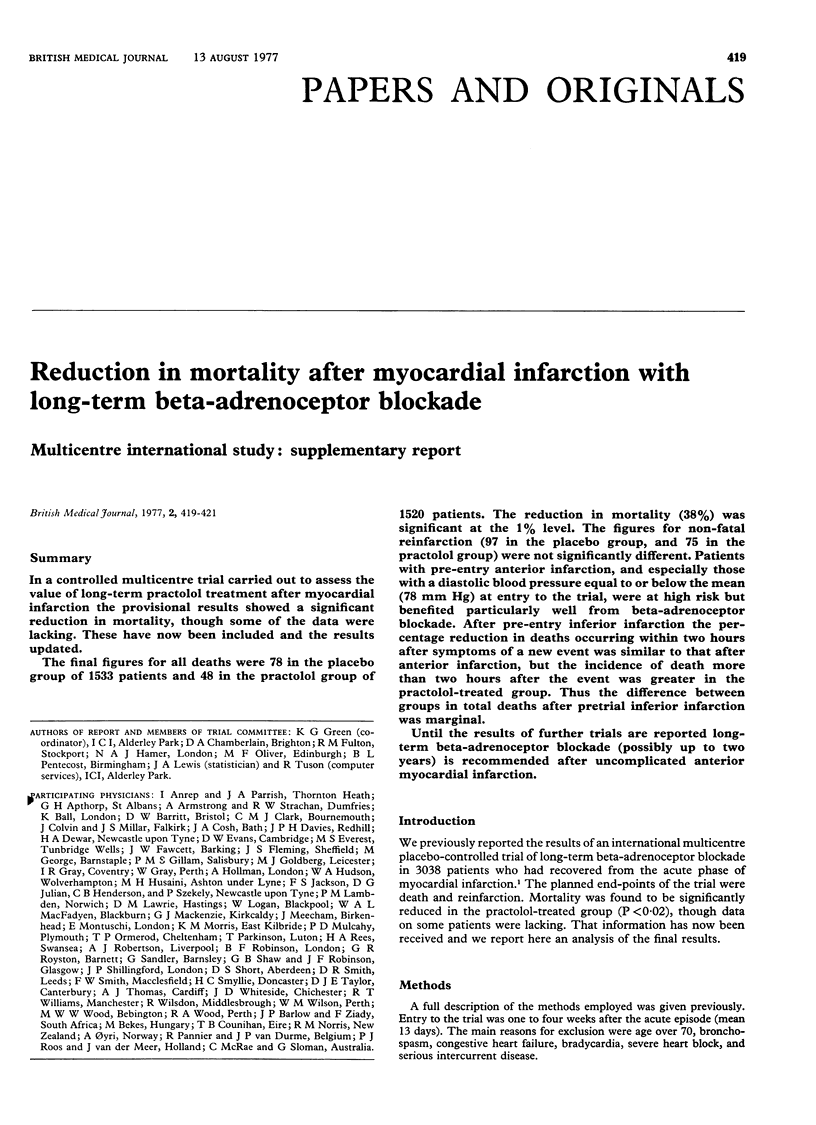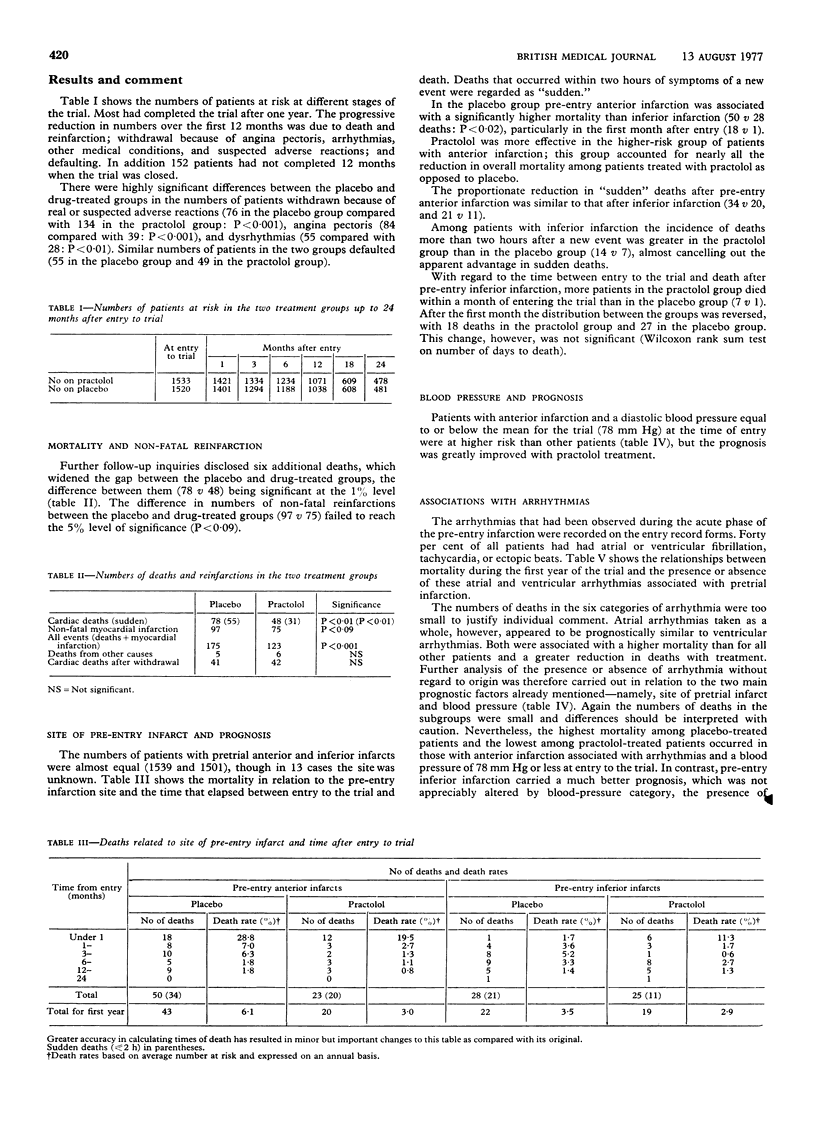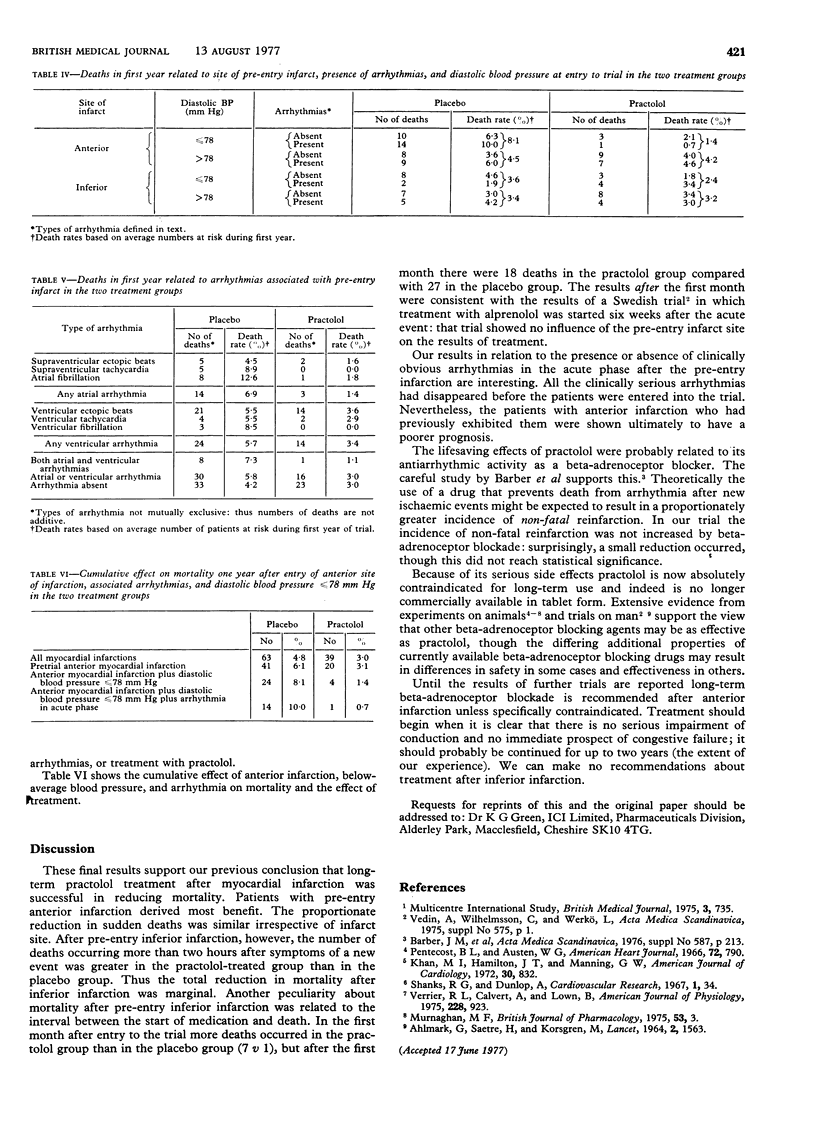Abstract
In a controlled multicentre trial carried out to assess the value of long-term practolol treatment after myocardial infarction the provisional results showed a significant reduction in mortality, though some of the data were lacking. These have now been included and the results updated. The final figures for all deaths were 78 in the placebo group of 1533 patients and 48 in the practolol group of 1520 patients. The reduction in mortality (38%) was significant at the 1% level. The figures for non-fatal reinfarction (97 in the placebo group, and 75 in the practolol group) were not significantly different. Patients with pre-entry anterior infarction, and especially those with a diastolic blood pressure equal to or below the mean (78 mm Hg) at entry to the trial, were at high risk but benefited particularly well from beta-adrenoceptor blockade. After pre-entry inferior infarction the percentage reduction in deaths occurring within two hours after symptoms of a new event was similar to that after anterior infarction, but the incidence of death more than two hours after the event was greater in the practolol-treated group. Thus the difference between groups in total deaths after pretrial inferior infarction was marginal. Until the results of further trials are reported long-term beta-adrenoceptor blockade (possibly up to two years) is recommended after uncomplicated anterior myocardial infarction.
Full text
PDF


Selected References
These references are in PubMed. This may not be the complete list of references from this article.
- Ahlmark G., Saetre H., Korsgren M. Letter: Reduction of sudden Deaths after myocardial infarction. Lancet. 1974 Dec 28;2(7896):1563–1563. doi: 10.1016/s0140-6736(74)90299-2. [DOI] [PubMed] [Google Scholar]
- Barber J. M., Boyle D. M., Chaturvedi N. C., Singh N., Walsh M. J. Practolol in acute myocardial infarction. Acta Med Scand Suppl. 1976;587:213–219. doi: 10.1111/j.0954-6820.1976.tb05884.x. [DOI] [PubMed] [Google Scholar]
- Khan M. I., Hamilton J. T., Manning G. W. Protective effect of beta adrenoceptor blockade in experimental coronary occlusion in conscious dogs. Am J Cardiol. 1972 Dec;30(8):832–837. doi: 10.1016/0002-9149(72)90007-0. [DOI] [PubMed] [Google Scholar]
- Pentecost B. L., Austen W. G. Beta-adrenergic blockade in experimental myocardial infarction. Am Heart J. 1966 Dec;72(6):790–796. doi: 10.1016/0002-8703(66)90162-1. [DOI] [PubMed] [Google Scholar]
- Shanks R. G., Dunlop D. Effect of propranolol on arrhythmias following coronary artery occlusion in dogs. Cardiovasc Res. 1967 Jan;1(1):34–41. doi: 10.1093/cvr/1.1.34. [DOI] [PubMed] [Google Scholar]
- Verrier R. L., Calvert A., Lown B. Effect of posterior hypothalamic stimulation on ventricular fibrillation threshold. Am J Physiol. 1975 Mar;228(3):923–927. doi: 10.1152/ajplegacy.1975.228.3.923. [DOI] [PubMed] [Google Scholar]


